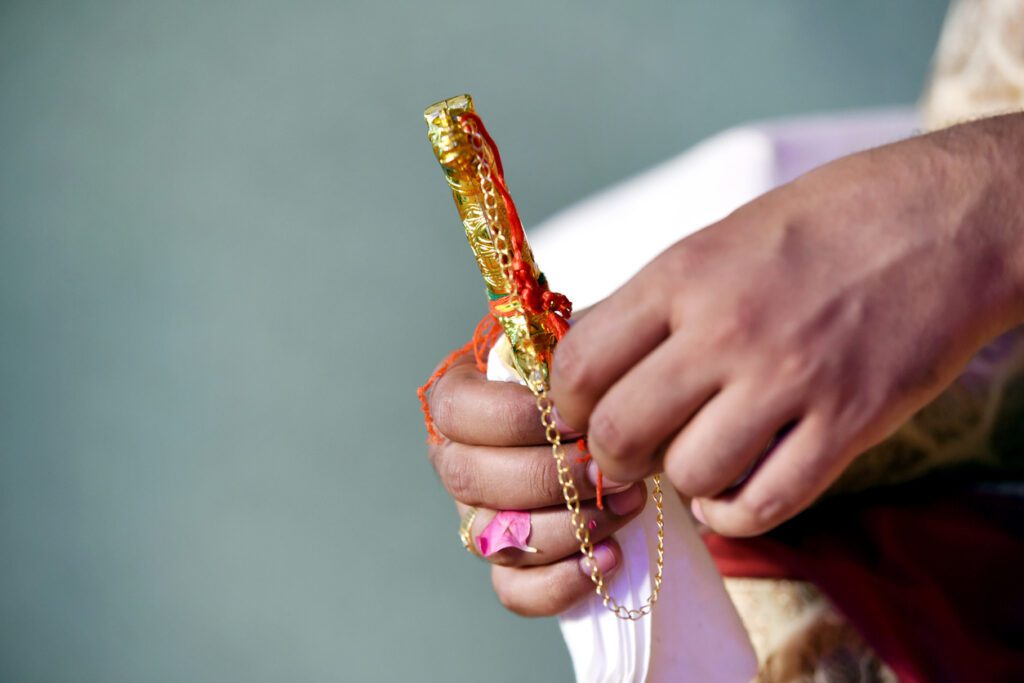By Calvin Gnech, Criminal Lawyer and Legal Practice Director at Gnech and Associates
03 August 2023
Youths arming themselves with edged instruments has developed into one of the most concerning community safety concerns over the last decade. There have been fatal and non-fatal examples of knife attacks in Queensland Schools over the past decade. In 2010 a 12 year old student was fatally stabbed with a kitchen knife in a school toilet block by a 13 year old student.[1] In May 2023 a non-fatal stabbing occurred in a North Queensland School.

The Government and Police have attempted to implement a strict regime of detection and prosecution for knife possession in a public place by introducing unprecedented laws for search and seizure with the use of metal detectors without any specific need for justification or suspicion.
In what will no doubt be considered a controversial decision, the state’s highest court, the Queensland Court of Appeal[2], has overturned a decision of the Queensland Supreme Court and ruled Queensland weapons laws invalid which purported to prohibit the carrying of a Kirpan, a small ceremonial sword, whilst attending a school.
Gnech & Associates Legal Practice Director, Calvin Gnech, discusses the factors which the court relied on to come to this conclusion and what may now occur legally moving forward.

The Legal Challenge
The Caxton Community Legal Centre mounted a legal challenge to the laws on behalf of Ms Kamaljit Athwal (“the Applicant”). The Applicant is an Amritdhair Sikh. As part of their faith, once initiated, Amritdhari Sikhs are required to wear a Kirpan.
The gravamen of the Applicant’s complaint was that initiated Sikhs (“Sikhs”) are prevented from entering school grounds because of their religious beliefs as a result of the operation of s 51 of the Weapons Act, specifically s 51(5) which impinges on a number of human rights and freedoms not suffered by non-Sikhs, such that it is contrary to s 10 of the Racial Discrimination Act 1975 (Cth) (“the Racial Discrimination Act”).
The question for the Court was whether s 51 of the Weapons Act deprives the Applicant from enjoying a human right or fundamental freedom to the extent that is enjoyed by persons of another race.
Queensland Legislation
Section 51 of the Weapons Act 1990 (“the Weapons Act”) prohibits the carrying of a knife in a school, which would include a Kirpan, without reasonable excuse.
Of particular importance in this case was s 51(4) of the Weapons Act specifically authorizes Sikhs to possess kirpans in a public place to comply with the person’s religious faith. However, s 51(5) purports to prohibit absolutely the possession of a knife, including a kirpan, from being physically possessed in a school for genuine religious purposes. It is this latter provision, which is directed specifically at Sikhs, which the Court of Appeal has ruled to be invalid on the basis of that law being discriminatory and unconstitutional.
Supreme Court
Justice Brown heard the application at first instance in the Queensland Supreme Court. Justice Brown dismissed the Application refusing to find the legislation was discriminatory.
Court of Appeal

The Court of Appeal was constituted by Court of Appeal President Justice Mullins, Justice Dalton and Acting Justice of Appeal Mitchell. The decision was unanimous.
In coming to its conclusion, the court found it was apparent from the express terms of the Weapons Act that Parliament objectively intended to prevent the physical possession of kirpans in schools.
The court went on to find a kirpan is a ‘knife’ for the purposes of the Weapons Act whether it is blunt or sharp and whether it is or is not sewn into a pouch. Further, that possession of a kirpan in a public place or a school for religious purposes would ordinarily constitute a reasonable excuse under the Weapons Act and not be illegal. However, s 51(5) specifically provides that genuine religious purposes are not a reasonable excuse for physically possessing a knife in a school.
The court when on to find that s 51(5) of the Weapons Act, in making specific legislation directed at Sikhs, is inconsistent with the Racial Discrimination Act and inoperative under the Constitution and was invalid.
Observations
This case raises the community interest aspect when the competing interests of parliamentary intention to protect the community from harm collide with the restrictions placed on laws by the Constitution and discriminatory principles.
As stated above this case will no doubt raise intense community debate and opinion. The Government is now left with three options.
The first, to do nothing and accept the decision.
The second, the State of Queensland may exercise its right to apply for special leave to appeal to the High Court.
The third, Government may consider legislative amendments which do not offend the Racial Discrimination Act and Constitution. Any legislative amendment would need to be directed at the community at large rather than specially directed at Sikhs to be deemed valid legislation.

[1] Re GWD [2011] QMHC 16.
[2] Athwal v State of Queensland [2023] QCA 156.


